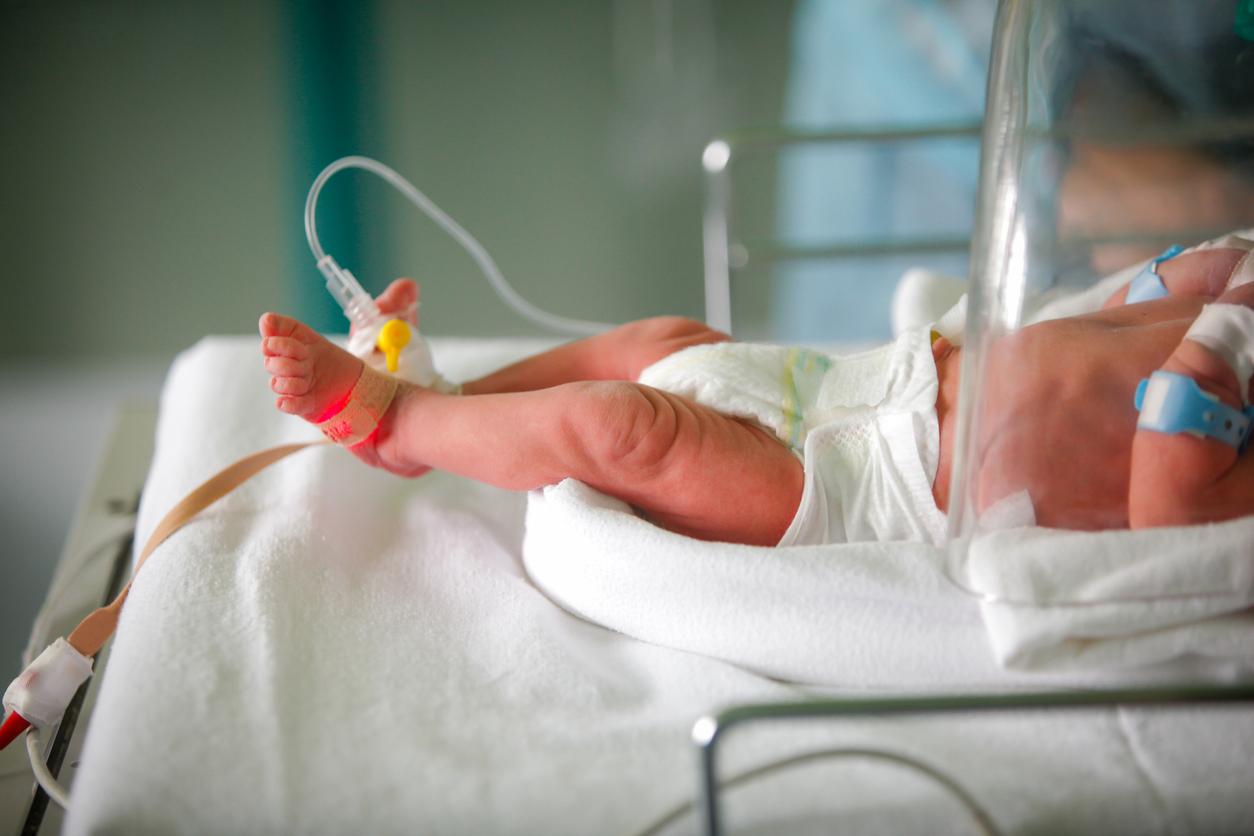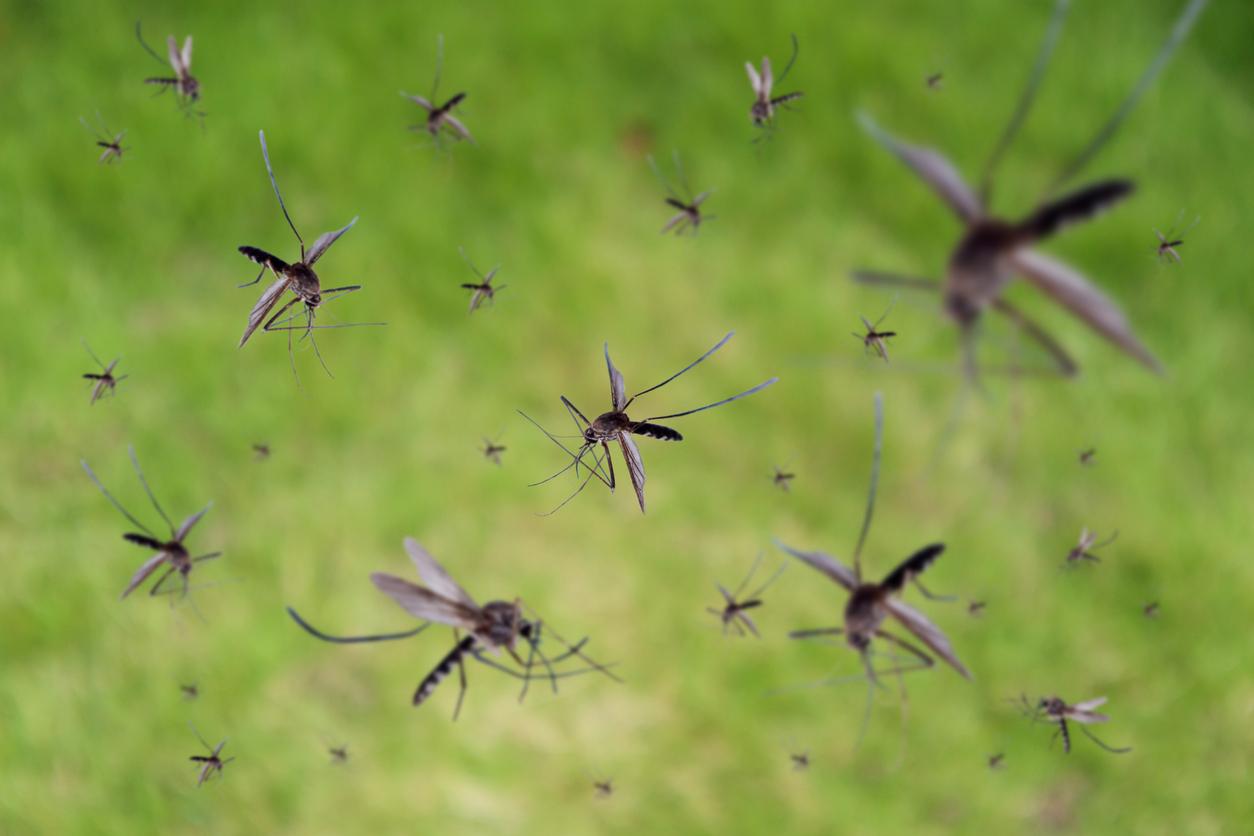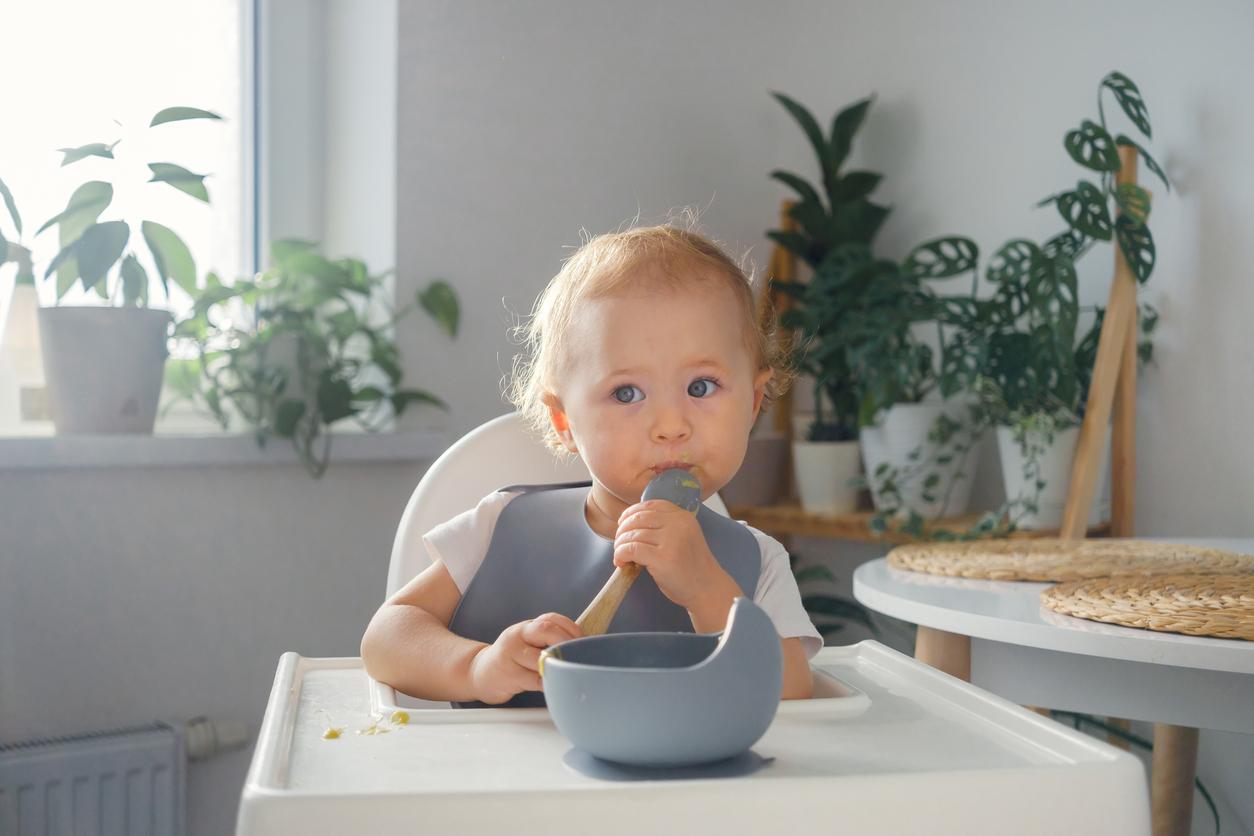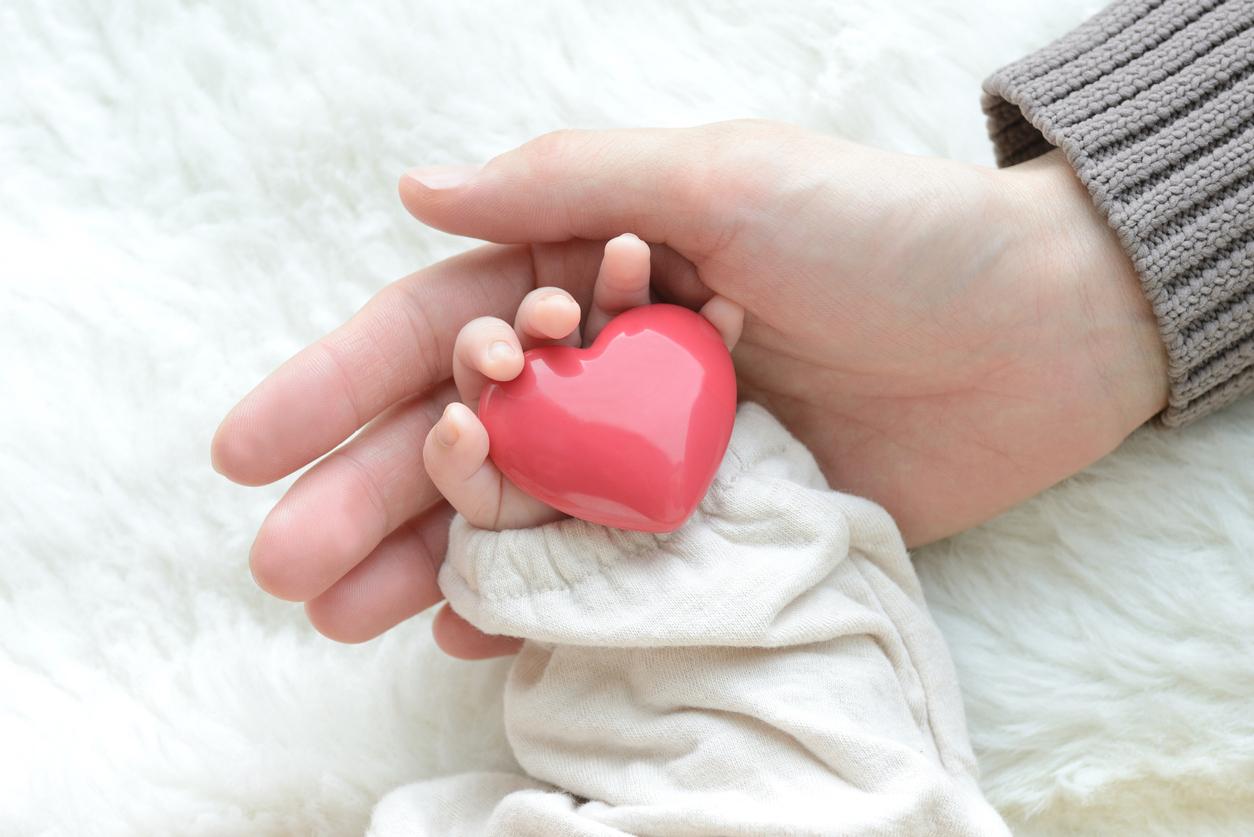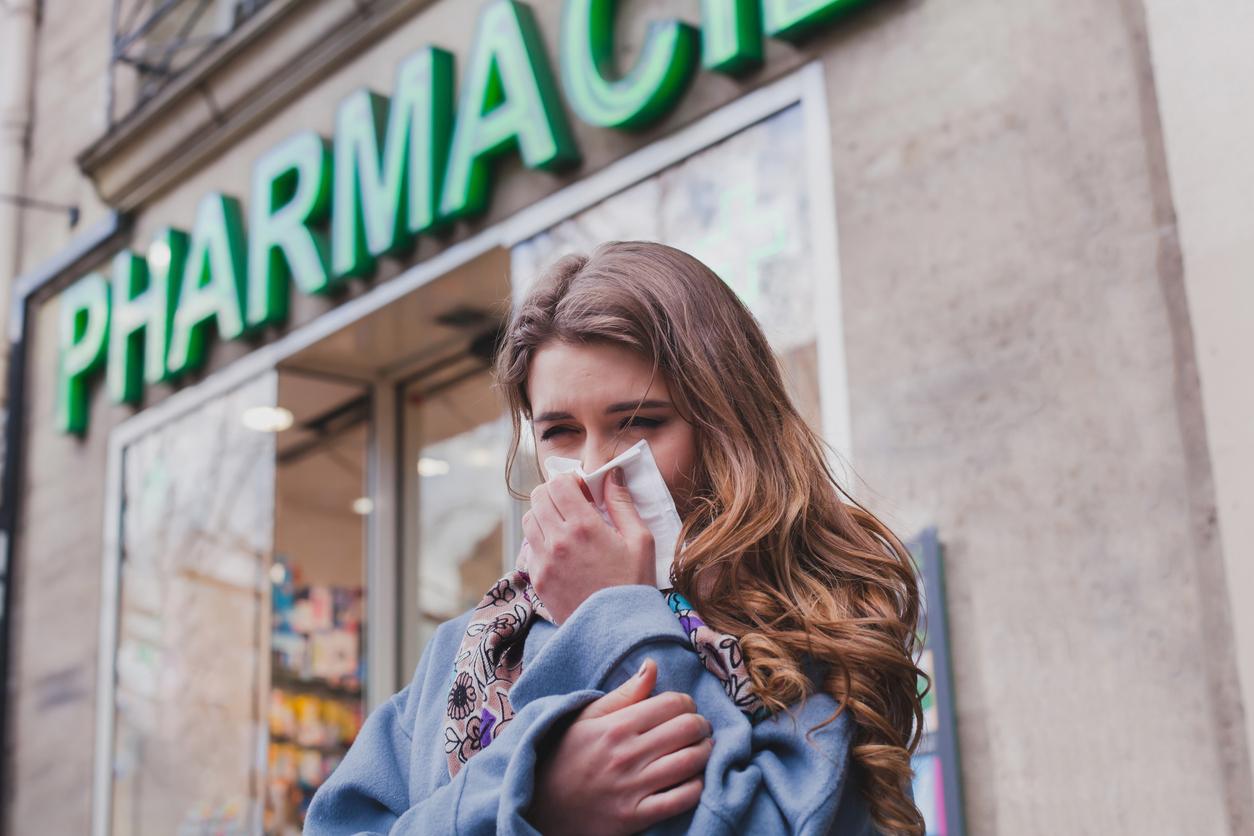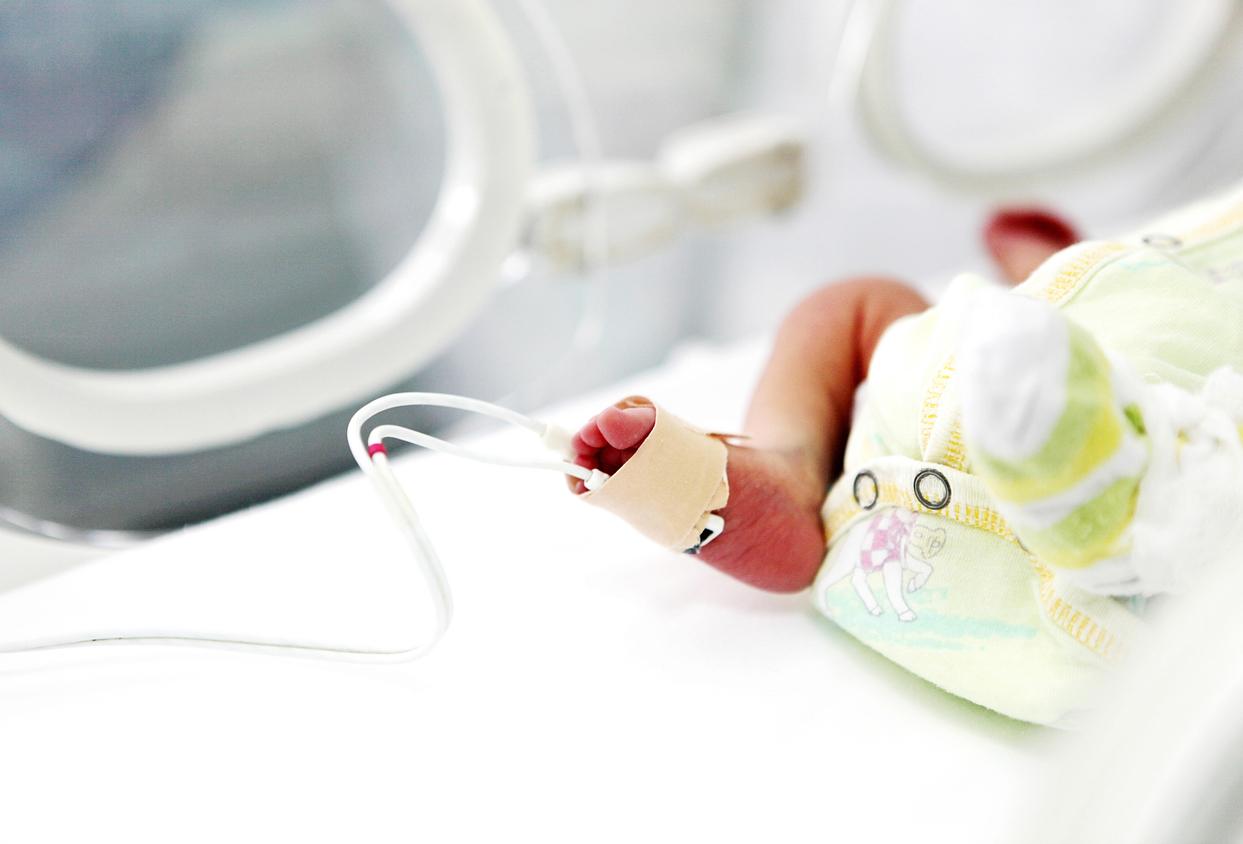- What is bronchiolitis?
- What are the symptoms in infants?
- How to avoid bronchiolitis?
- In video, 3 misconceptions about the disease
- What should you do in the event of bronchiolitis in a baby?
- Is bronchiolitis contagious? How is it transmitted? How long?
- Is there a vaccine for bronchiolitis?
- What are the treatments for bronchiolitis?
- When to consult the doctor again or dial 15?
The bronchiolitis epidemicis back in France, as Public Health France announces in its situation bulletin of October 11. For the moment, 3 regions have entered the epidemic phase: Ile-de-France, Martinique and Guadeloupe. But 5 other regions are already in the pre-epidemic phase: Normandy, Occitanie, Pays de la Loire, Grand Est and New Aquitaine.
“The increases in visits to emergency rooms are comparable to those observed in the two years prior to the same period, reflecting an early start again activity linked to bronchiolitis” underlines SPF.
In week 40 (from October 2 to 8), 1,653 visits to the emergency room for bronchiolitis were recorded in children under two years old, or 7.9% of visits: 503 children had to be hospitalized and 12 children had to be admitted to the service. resuscitation.
What is bronchiolitis?
Bronchiolitis (or “acute bronchiolitis in infants” in medical language) is a viral infection which mainly affects children under the age of 2. Far from being rare, it affects 3 out of 10 babies each year in France, with 480,000 annual cases recorded on average.
If bronchiolitis primarily affects infants and not older children and adultsthis is due to the presence of antibodies only present in babies, explained researchers from the Pasteur Institute, in a study published in 2017.
To know. The “epidemic peak” of the disease generally extends from November to February : this is where you have to be vigilant!
What are the symptoms in infants?
THE symptoms of bronchiolitis in infants are easily recognizable:
- A cold with a low fever (above 37.5°C),
- A dry cough,
- A wheezing breath,
- Difficulty eating.
“At the very beginning, baby has a runny nose and a slight fever” explains Dr Sydney Sebban, pediatrician and medical coordinator of the Bronchiolite Île-de-France network. But very quickly, the virus, entering the bronchioles, these fine bronchi which bring air into the lungs, creates inflammation. The latter in turn causes hypersecretion of mucus which will block the bronchioles. Your baby has trouble breathing. He coughs, his breathing becomes rapid and sometimes wheezing.
It’s serious ? Despite sometimes impressive symptoms, bronchiolitis is a benign disease. The symptoms subside (without treatment) within a few days, and the child recovers within 8 to 10 days although the cough may persist for a fortnight.
Read also: Bronchiolitis in babies: when to (necessarily) go to the Emergency Department?
Be careful, head to the emergency room if:
- The fever lasts more than 48 hours;
- The baby is very sleepy;
- He takes less than 50% of his bottles;
- He is less than two months old;
- his crying is excessive;
- He was born prematurely;
- He suffers from a chronic illness;
- He finds it more and more difficult to breathe.
How to avoid bronchiolitis?
Pediatricians from the French Association of Ambulatory Pediatrics recall that to protect the youngest and most vulnerable, it is urgent to strengthen barrier measures which have shown their effectiveness during the covid-19 pandemic: ventilation of premises, hand hygiene, wearing a mask to limit the transmission of the virus, distancing.
To avoid bronchiolitisparents of infants can also:
- Limit visits to the circle of very close and non-ill adults, no kisses or passing from arm to arm, no visits to young children before the age of 3 months;
- Wash your hands before and after contact with the baby (especially when changing, feeding, bottle-feeding or eating);
- Wash toys and comforters regularly;
- Wear a mask yourself in case of a cold, cough or fever;
- If the rest of the siblings show symptoms of viral infection, keep them away from the baby during the acute phase of the infection;
- Avoid family gatherings as much as possible, busy and enclosed places such as supermarkets, restaurants or public transport, especially if the child is less than three months old;
- Ventilate the child’s living space daily, particularly the room where he sleeps;
- Avoid entering a community (crèches, daycares, etc.) before 3 months, do not entrust your child to a community on days when he or she shows symptoms of viral infection;
- Plan his first vaccinations without delay so that he is protected as quickly as possible from severe infections in early childhood;
- Be up to date with your whooping cough vaccinations, get vaccinated against the flu (ideally during pregnancy during the epidemic season);
Christèle Gras-Le Guen, president of the French Society of Pediatrics, and head of the pediatric emergency department at Nantes University Hospital invited in October 2021 on France Info, to protect babies from bronchiolitis by limiting “visits to the circle of very close, non-sick adults”. She also advises “as far as possible” not to take public transport, not to go to the supermarket or to a restaurant with babies. “These are indeed places where viruses circulate a lot, and which are of absolutely no interest for a young child under two months old. As far as possible, we must organize ourselves to avoid places where there are many of people, and of course also big family celebrations.”
What should you do in the event of bronchiolitis in a baby?
No medication in cases of bronchiolitis in infants: according to the High Authority of Health (HAS), ” bronchodilators, adrenaline, hypertonic saline have no indication in this disease “. Antibiotics are only used in rare cases of bacterial superinfection – remember that they do not work on viruses!
To avoid… The techniques of respiratory physiotherapy traditional (clapping or vibrations) are “contraindicated“. The technique of increasing expiratory flow (AFE) has not”not proven to be effective” And “is therefore not recommended“.
To overcome this disease (which is benign in the vast majority of cases) HAS only recommends nose wash and special monitoring of the little patient.
To know. You should go to the doctor quickly if the child has trouble breathing and/or if he no longer drinks. You must call emergency services (15 or 112) if the child has a bluish mouth, if he feels unwell, if he sleeps all the time or if he seems to be apnea from time to time!
Read also:Why does respiratory physiotherapist raise questions?
In video, 3 misconceptions about the disease
Is there a vaccine for bronchiolitis?
The French laboratory Sanofi, in collaboration with the AstraZeneca laboratory, announced in early September that it was working on the development of a vaccine against bronchiolitis in infants. This vaccine, called “Nirsevimab”, was tested on 2,300 children, and its efficiency is estimated at 79.5%. But as phase 3 clinical trials are still in their very early stages, the vaccine should not be available before 2023. The European Medicines Agency must first decide on its marketing.
Is bronchiolitis contagious? How is it transmitted? How long?
Bronchiolitis is a disease “extremely” contagious, according to Health Insurance. The virus can be transmitted in two ways:
- There contagion can be done directly from person to person, through bronchial secretions (sneezing, spittle, coughing, blowing your nose, etc.) or contact between people (kissing),
- Indirectly, through hands or objects soiled by saliva (toys, towels, contaminated food or drinks, etc.).
How long? Without complications, bronchiolitis heals in 7 to 10 days.
What are the treatments for bronchiolitis?
THE Treatment of bronchiolitis in babies essentially consists of treat symptoms : washing the nose with physiological serumif necessary, additional oxygen supply. Respiratory physiotherapy is no longer recommended since 2020. “Bronchodilator drugs and mucolytics also have no use in the treatment of bronchiolitis“, explains Health Insurance. Furthermore, cough suppressants, expectorants and thinners are contraindicated in children under 2 years old.
Finally, since bronchiolitis is caused by a virus, antibiotic treatment has no effect. Antibiotics are only prescribed in cases of bacterial superinfection.
Depending on your infant’s age, health and severity of bronchiolitis, your doctor judges the need for possible hospitalization of your infant for monitoring.
If the bronchiolitis is not severe (therefore does not require hospitalization) your doctor will give you advice on monitoring your child, particularly during the first two days. He also explains the warning signs that should be consulted again and reschedules, if necessary, a new consultation to check that the bronchiolitis is on the mend.
Do not look for “natural remedies“, bronchiolitis can be severe if it is not treated. A consultation is essential.
To remember :
- Make sure your child is breathing properly: clear his nose before meals and regularly (as many times as necessary) by washing the nose; when awake, keep your child upright, this may help them breathe better; avoid exposing your child to passive smoking. Read also: How to blow baby’s nose?
- See to split your meals so that he continues to eat despite the loss of appetite and offer him water frequently.
- If he has a fever, dress him lightly and monitor his temperature. Unless contraindicated, give paracetamol if necessary. Do not overheat your room (19°C max). Read also: Baby fever, when to go to the emergency room?
- Be attentive to any change in behavior (the baby moves less, reacts less…).
When to consult the doctor again or dial 15?
During the duration of bronchiolitis and especially the first two days, monitor your baby’s health and consult your doctor again if:
- Your child has fluttering of the wings of the nose, intercostal drawing (to breathe he hollows his chest) or begins to breathe more quickly;
- Its temperature increases;
- You are unable to feed him or give him enough water to keep him well hydrated;
- Your child changes his behavior (he cries, he is less reactive, etc.)
Contact 15 if:
- He takes breathing pauses;
- His breathing becomes slow and he remains very difficult to breathe;
- He feels unwell;
- He no longer reacts, is very tired, sleeps all the time, whines;
- It turns blue around the mouth;
- He refuses to drink bottles or breastfeed.
Sources :
- Bronchiolitis press sheet, Directorate General of Health, November 2021.
- Bronchiolitis epidemiological bulletin, Public Health France.
- Recognizing bronchiolitis, Health Insurance
- Management of the first episode of acute bronchiolitis in infants under 12 months of ageHAS, November 2019.
- Acute bronchiolitis: physiotherapy is no longer recommendedHAS, November 2019.











